INTERVIEW
【Focus on this! SPOGOMI World Cup2023 vol.3】
in JAPAN
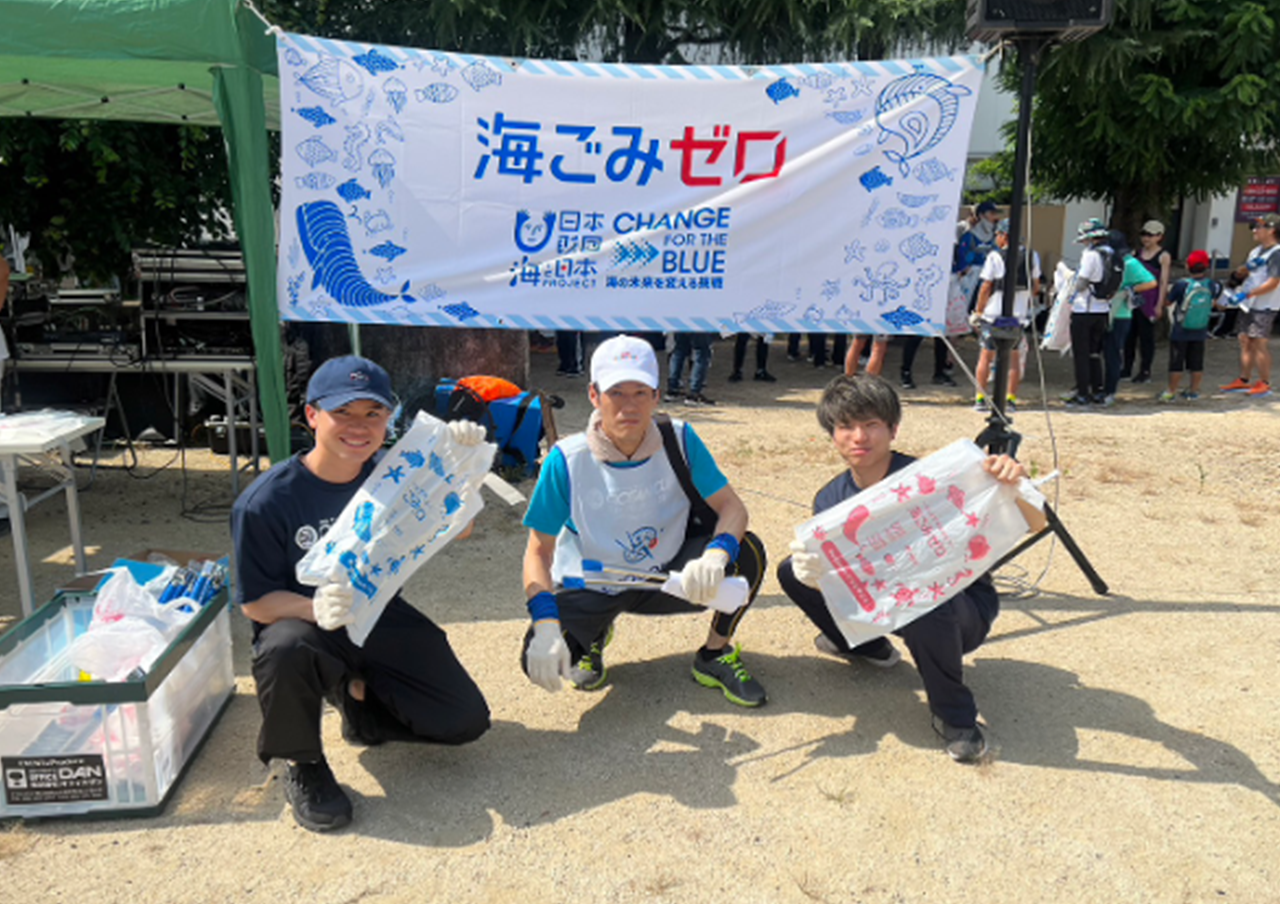
The SPOGOMI WORLD CUP is also participated in by many boat racers who have close ties to the Nippon Foundation, which plans and supports this initiative.
Many of the boat racers are enthusiastic about social contribution activities through disaster recovery support volunteers and donations, and they actively participated in the qualifying STAGE in each region to help fight marine litter.
In this issue, we interviewed three of the boat racers who participated in the SPOGOMI WORLD CUP, Morisada Koji (Okayama), Masaki Musashi (Shizuoka), and Wada Kensuke (Hyogo), to learn about their thoughts on SPOGOMI and their participation in each qualifying STAGE.
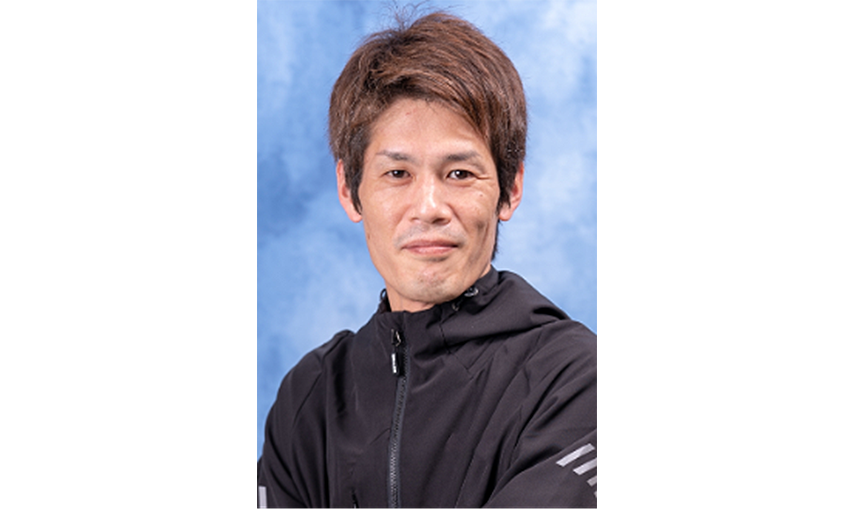
――What made you decide to participate in this SPOGOMI WORLD CUP?
I am interested in social contribution activities both as an individual and as a boat racer, and I frankly felt that I would like to participate.
――It was unexpected that Morisada, who also serves as the Okayama Branch Manager of the Association of Professional Motorboat Racers, would lead two young racers in the event.
I was a member from the beginning. When I was asked to join, I was like, “I’ll definitely go, who are the other two?”
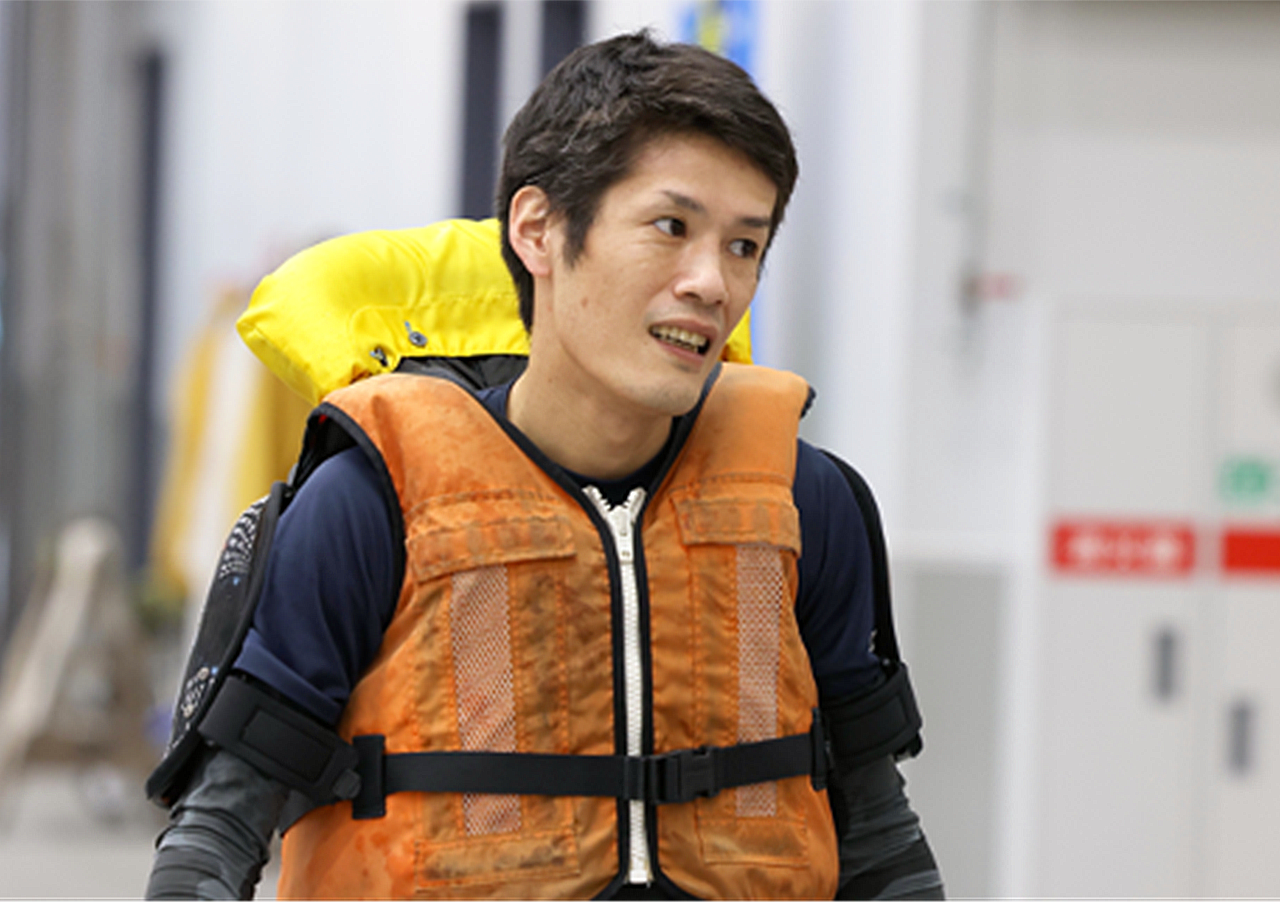
――Were you aware of SPOGOMI?
No, I did not know about it until I was approached.
I frankly thought it sounded like fun compared to simple trash pickup.
I looked it up and found that you have been doing it for several years.
――The SPOGOMI World Cup will be held this year. You may have hardly been aware of the “Trash Pickup” World Cup, but what was your impression of it?
Right, before we started, the three of us were like, “OK, well, let’s go for the world championship!” We were excited at the thought of a world championship, and our morale was high, wanting to go if we could.
The other two participants (Umehara Shohei and Fujiwara Aoi) were more excited than usual about the cleanup activity, and they enjoyed participating in it.
――What was your impression when you actually participated in the competition?
I was surprised to see how much trash was left behind, and I also felt that, unlike usual cleanup activities, we were able to work on it with a sense of competition.
However, I was concerned that some participants were so competitive that they focused too much on the trash and suddenly ran off the sidewalk, which was dangerous.
SPOGOMI itself is a sport with a very positive aspect, and I hope that you will continue to hold this event safely in the future.
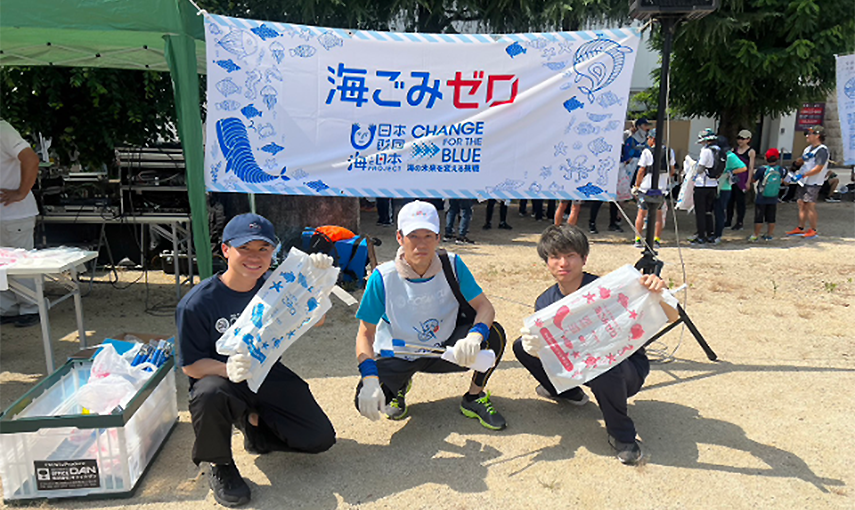
――Thank you for your valuable feedback regarding safety.
You mentioned that you felt there was a surprisingly large amount of garbage, what were some of the things you noticed?
Our team’s strategy was to collect mainly cigarette butts, but we were surprised to find many of them in parking lots and coin-operated parking lots.
――In retrospect how did you feel about the strategy of collecting mainly cigarette butts?
We discussed this strategy together and decided on it, but it was a strategy that other teams could have naturally come up with, and to be honest, we could have looked at other waste as well.
――You usually train hard as a boat racer and are at the forefront of the sport. Was there any part of SPOGOMI that you were able to make use of because you are a boat racer?
We boat racers undergo rigorous training to become racers, and during the training period, there is what is called “work”. We are trained through this work, so boat racers are quite good at clean-up activities. For example, if we pick up trash, we try to collect as much as possible. I guess we utilized this kind of mentality that was drilled into us during our training days.
――How would you define “work?”
In addition to training such as boat boarding and classroom training, there are also cleaning and weeding duties around the water surface, which are collectively called “work”. In our time, we also had to exterminate jumbo snails that had infested the surface of the water and maintain the wasteland inside the training center!
We are quite used to this kind of work (laughs).
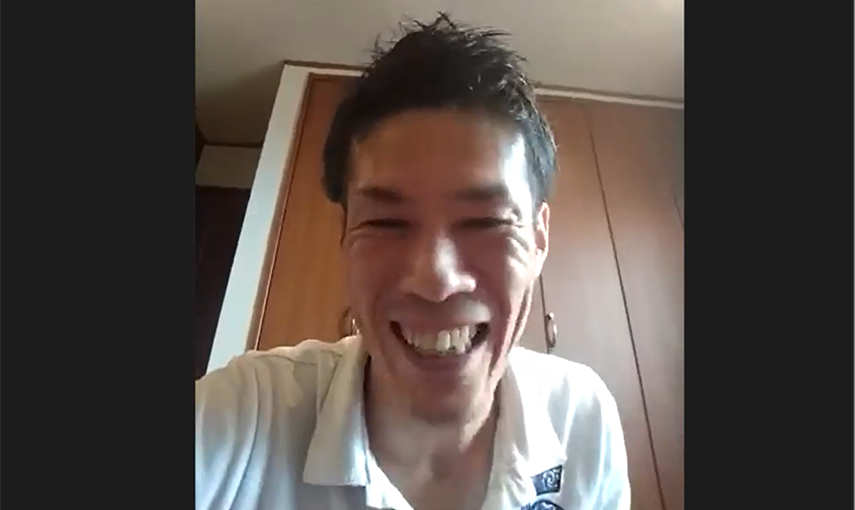
――I understand that Mr. Morisada is also actively involved in activities to support the recovery from the torrential rain in July 2008 (Note: The Association of Professional Motorboat Racers conducts volunteer activities to support reconstruction in the event of various disasters. At the time of the torrential rains in July 2008, the Okayama Branch took the lead in carrying out recovery support activities seven times in six months with a total of more than 110 people. In addition, Yoshida Kakuro, a member of the Okayama Branch, made a large donation to support the restoration of Kurashiki City.).
What has been the source of your enthusiasm for social contribution activities?
I have always believed that I am not allowed to be a boat racer for granted. I feel that I am a boat racer thanks to all of you, and if there is someone in need, I should offer a helping hand. In that sense, boat racers are a part of society, and if there is something I can contribute, I will do it.
――What are some of the social contribution activities you have been involved in that stand out in your mind?
On the positive side, when you cleaned up one private home, you were thanked by the residents after it was cleaned up.
However, what I consider a negative was when I was faced with people who were so worn out and hurt that they did not want us to come when we volunteered to help them. This was impressive.
We were there with the best of intentions, but considering the feelings of the disaster victims, we could not force them to allow us to volunteer. I felt the difficulty.
――What are your daily thoughts and efforts regarding environmental issues?
We work on the sea, so we have a desire to keep it clean. Just the other day, Boat Race Kojima organized a 100-200-person cleanup along a nearby beach. There was a tremendous amount of trash at that time as well, and although I don’t feel as competitive as I did at SPOGOMI, I was able to work on it (laughs).
I have small children of my own, and I want to leave a clean ocean for them, so I usually pick up trash I see, and I am careful to separate trash when I throw it away. It is my desire to do this for the sake of future children.
――SPOGOMI will now move on to the All-Japan Competition and then to the World Cup.
Various people from Japan and abroad will be participating in SPOGOMI. Do you have any messages for future participants?
I recognize that SPOGOMI is a very innovative competition that mixes sports and trash pickup. Like other sports, SPOGOMI has its own rules, and I hope that participants will enjoy picking up trash while observing them!

――Mr. Masaki participated in the Shizuoka STAGE held on July 17.
He is a young player who just made his debut this year, and as such, we would like to ask him to tell us about what made him decide to become a player.
My grandfather used to take me to the race track when I was little, so I was familiar with boat racing.
After graduating from high school, I had no intention of becoming a boat racer. I went to a vocational school for video production. However, my mother saw me watching boat races on TV and suggested that I become a boat racer. So I decided it was now or never, and from that day on I stopped attending classes at the vocational school, lost weight, prepared for the exam, and became a racer.
――That’s a great move to take action that day!
There is a limit to the number of times a boat racer can take the test. I thought to myself, “I can’t waste even one day.”
Other professional sports require training from a young age, but the best thing about boat racing is that you can become a professional with no experience.
――I hear that the training at the training school is quite rigorous…
Yes, the schedule was minute-by-minute from morning to night, and the instructors were strict with me, but my father was a Japan Ground Self-Defense Force officer, and he was strict with me at home as well, so in that sense, I didn’t feel too much pain.
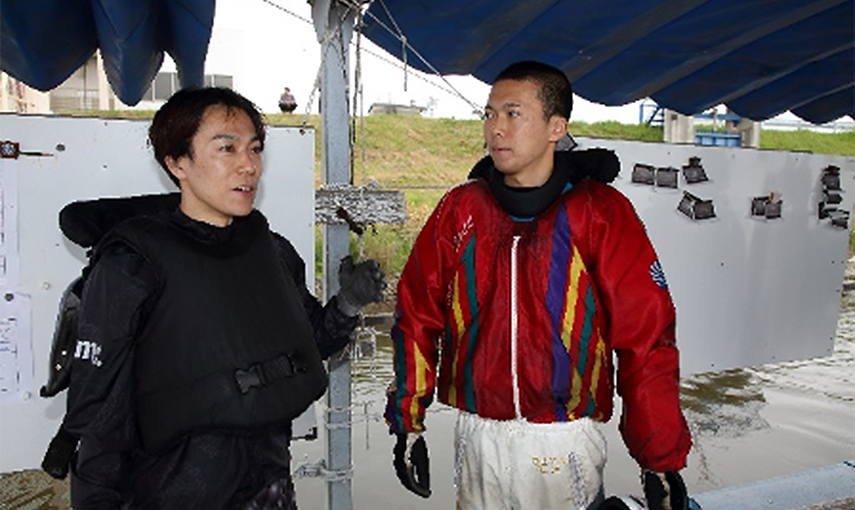
――Thank you. So you have that background!
Now I would like to ask you about SPOGOMI.
First of all, what made you decide to participate?
When I heard about it, I thought it sounded interesting that trash pickup was a competition, so I joined.
To be honest, I had never heard of SPOGOMI until then.
――We will be holding the world’s first World Cup of trash pickup. What is your impression of holding a world championship in trash pickup?
To be honest, I was surprised. I thought it was just a regional thing, so it looks interesting on a larger scale.
――By the way, have you ever picked up trash before?
I participated in a trash pickup in my parents’ home area in Yokohama, and there was some “work” at the training school.
――I heard from Mr. Morisada about the “work”. I see that you are still doing the “work”.
Yes, we still do it! At the training school, Sundays were off, but in the mornings we had “work” time, and we did things like weeding, removing cobwebs, and cleaning up.
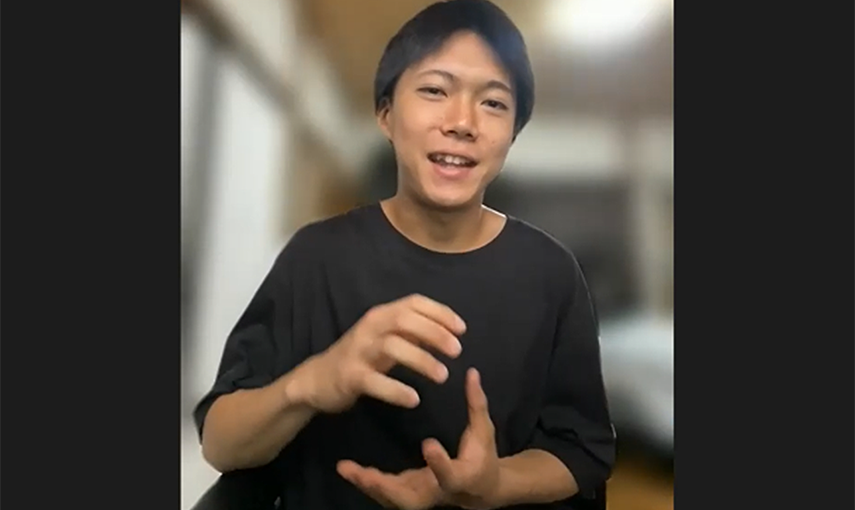
――Unfortunately, the team in which you participated came in second place.
How was it to actually participate in Shizuoka STAGE?
Everyone was actively participating, and I was determined not to be outdone.
The atmosphere was very friendly.
The result was second place, but it was really close, and I was very disappointed! The other two players who participated with me were also the same.
――Looking back on the competition, what made the difference between winning and losing?
We should have known better where the spots with trash were.
Our team’s strategy was to look for cigarettes and umbrellas, but we probably should have anticipated the location of the umbrellas beforehand.
――Umbrellas! Did you actually find them?
We found them (laughs).
They were in the gap between the buildings.
――Please let me know if you have any new perspectives on the actual trash pickup, like the discovery of unexpected hot spots.
Well, the parking lots and other places that I usually use without thinking were dirtier than I had expected.
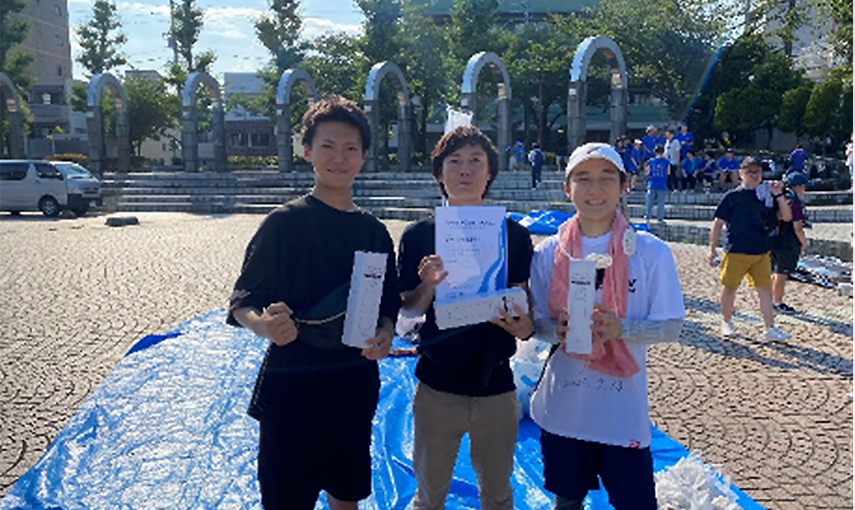
――Mr. Morisada shared the same opinion. Parking lots are unexpectedly dirty places.
I know that you have been training as a boat racer every day, but were there any situations in the competition where you were able to make the most of being a racer?
After all, we athletes have competitiveness.. When we participated in the Shizuoka STAGE, we said, “If we’re going to do it, we’re going to compete in the world championships”. We were not playing for fun, but for real if we were going to compete.
The result was really close.
――Your team was really close.
I have heard that boat racers participate in many social contribution activities. You just made your debut this year, so what do you think about the social contribution activities of your senior racers?
I know about the social contribution activities of the senior racers from reading about them in the racers’ newspaper.
It was the first time for me to participate in such activities, but senior racers have participated in activities such as disaster relief and reconstruction assistance, and I feel that their positive attitude toward participation is wonderful, and I am happy to be able to contribute to the community in this way.
I also hope that through this kind of activity, people will learn more about the boat racing profession.
――This SPOGOMI WORLD CUP will be followed by the All-Japan Competition and the World Cup in the future.
Please give a message to those who will be participating in the All-Japan Competition and the World Cup!
I believe that all of you who have made it that far are serious, and I urge you to do your best so that you will not lose to teams from around the world!

――Mr. Wada participated in the Hyogo STAGE held on August 6. “SPOGOMI” is a unique sporting event that combines sports and trash pickup.
Did you know about SPOGOMI before your participation?
I had no idea about it. To be honest, I didn’t really know what it was about, and I couldn’t even imagine what it was about.
――This year’s SPOGOMI WORLD CUP will be the first-ever world championship of trash pickup. What was your impression of the “World Cup of Trash Pickup”?
First of all, I wondered if trash pickup would be a competition.
However, SPOGOMI combines trash pickup and competition, which has a good synergistic effect, and it is very good that it can originate in Japan and expand its activities to the world.
――What were your impressions after participating in Hyogo STAGE?
This was my first time participating in this event, and I was amazed at the enthusiasm of the participants around me.
Everyone was taking the event very seriously, and there was a sense that they were not just picking up trash, but were competing in the event.
It was a great experience for me because it was directly connected to the creation of a clean city and the protection of the marine environment.
The two junior athletes (Fujimoto Genki and Takei Ririka) who participated with me also took the event very seriously.
――It is also important to strategize in advance at SPOGOMI, how was your participation?
It would have been important to decide on the route as a competition characteristic.
I wonder if it would have been easier to make a strategy if I had been aware of what kind of places trash would be dropped on a regular basis.
Maybe I should have come in ahead of time to do some preliminary research (laughs).

――How did you feel about the trash in the city when you actually picked it up?
The Hyogo STAGE competition was held at Nishinomiya Beach, a location adjacent to a park. The park was surprisingly free of trash, perhaps because people often pass through it or it is cleaned. The team that went to the area under the elevated highway brought back a tremendous amount of trash, so I got the impression that there was more trash on the public road where there was a lot of traffic, like a factory zone.
Most of the trash I picked up was plastic bottles. I wanted to pick up a lot of cigarettes because cigarettes are high in points, but from that point of view, not much fell out.
――Was there anything that you were able to apply to SPOGOMI because you are a boat racer?
We all have good eyesight, so we might have been able to take advantage of it.
Even in distant places, we were able to go out and pick up trash before the other team did.
――What about the “work” at the training school that Mr. Morisada and Mr. Masaki mentioned?
It is true that at the training school, regardless of the curriculum, you had to “work” every Saturday and Sunday on the weeding and other tasks.
During the “work” time, we had time to pick up trash in the area around the training school.
Looking back on it, I feel that my very first trash pickup began at the training school.
――I understand that you actively participate in the Hyogo Branch of the Association of Professional Motorboat Racers’ river cleanup activities.
Please tell us about your daily activities.
As the Hyogo Branch of the Association of Professional Motorboat Racers, we clean up the Muko River once or twice every six months.
It is a good opportunity for me to talk about racing with junior racers while picking up trash, and it is also a chance for me to interact with local residents.
We always pick up a lot of trash at the Muko River, which is very rewarding.
――Do you have any kind of motivation for participating in trash pickup activities?
About 15 years ago, I personally participated in an NPO initiative called “Project the Hozu River.”
The idea was to take a boat down the river and attach the boat to areas where garbage had accumulated and conduct cleanup activities. When I participated in this activity, I felt that “because there are people who throw things away, there are people who pick them up in this way.”
Have you never littered before? If I were asked by you, I would honestly say that I had. But after I joined it, I couldn’t litter anymore. There was a tremendous change in my heart. That was the best thing about attending it.
――About 15 years ago, that would be around the time you made your debut. So that’s where you got your start.
It was about one or two years after my debut.
I was invited by a friend, and to be honest, I was like, “Oh, are we going to go pick up trash?” I felt like I wasn’t going out to have fun.
But when I went there, I was very surprised to see such dirtiness in a famous natural tourist spot in Japan. The biggest gain was, as I mentioned earlier, the way I perceive garbage, or … I don’t throw it away anymore.
From that point on, I became aware of the importance of properly discarding and separating even the smallest trash, so it was a big event for me. I am really glad I participated.
――Did you see any change in the awareness of the young racers who participated in SPOGOMI with you as a result of this event?
I believe that the impression I got from the Hozu River trash pickup can be a catalyst for people’s minds, big or small, and SPOGOMI’s point system helps to foster that kind of awareness and change the way people view litter. This is very important when you are away from the competition.
I am sure that the young racers also gained something like that.
Note: Ms. Takei Ririka, who participated with Mr. Wada, commented that she would like to use this SPOGOMI as an opportunity to avoid producing garbage herself and that she would like to continue to actively participate in such activities in the future.
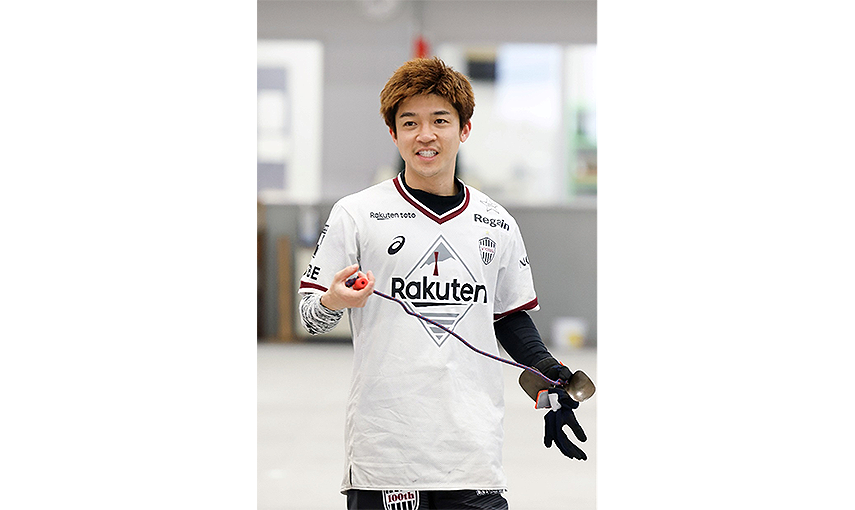
――What are your usual thoughts on the marine litter issue?
The first thing we can do is not to litter and to separate garbage.
It would be nice if garbage could circulate instead of flowing into the natural world.
When I see news stories about plastic being found in big fish, I feel that we are the first to prevent this from happening.
Also, it is important to continue picking up trash. In our cleanup activities along the Muko River, when the water level rises after rain, we find a lot of trash such as plastic and empty cans. Since these items end up in the ocean, it is important to stop them before they reach the ocean.
SPOGOMI is a fun addition to traditional trash pickup, and when you see trash in the middle of the competition, you feel like you are picking up treasures. The trash that we would normally overlook is now seen as sparkling.
This kind of change in awareness of trash may in fact be the main purpose of the event.
――Please give a few words to those who are going to participate in SPOGOMI’s All-Japan Competition and WC.
First of all, when I participated in the event, the excitement at the venue was amazing. The teams that were chosen to advance to the national competition were shouting and happy, and above all, I felt that what I was doing was a very positive thing for the world. My impression from participating in the competition was that SPOGOMI is a respectable competition in which you make strategies and add up points!
Since you are competing, I hope that you will participate in this by aiming for the top.
I realized how difficult it is, so I respect everyone who participates in the Japan Competition and WC, and I will do my best to support them! Next time I participate, I would like to ask those who participated to give me some tips secretly (laughs)!